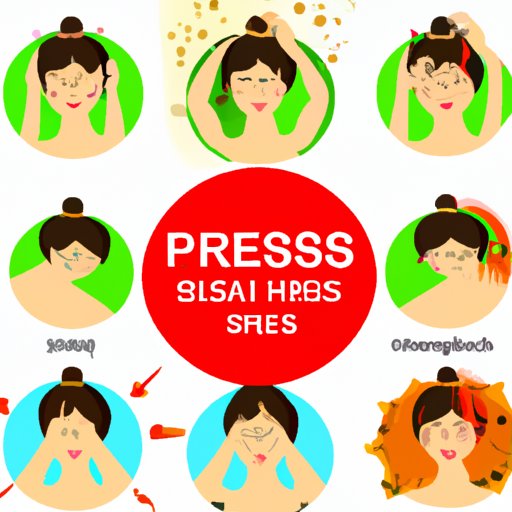
Introduction
Have you ever noticed a sudden breakout of hives or a rash during a particularly stressful time in your life? If so, you may be wondering if stress could be to blame for your skin woes. Indeed, recent research has shown that there may be a surprising link between stress and skin rashes.
In this article, we’ll explore the connection between stress and skin rashes, the underlying mechanisms at play, and the different types of rashes that can be triggered by stress. We’ll also provide some actionable tips for managing stress and preventing skin rashes, as well as information on when to seek medical help if you’re struggling with stress-related skin issues.
Stressed Out: The Surprising Link Between Stress and Skin Rashes
Stress can impact our bodies in a number of ways, from impacting our mental health to affecting our physical wellbeing. One surprising way that stress can manifest is through skin rashes. In fact, the American Academy of Dermatology reports that stress can trigger or worsen a variety of skin conditions, including eczema, psoriasis, and acne.
Additionally, a study published in the Archives of Dermatology found that high-stress levels were associated with an increased likelihood of developing itchy skin rashes, also known as hives or urticaria.
Is Your Stress Giving You a Rash? Understanding the Connection
So, how exactly does stress trigger skin rashes? According to the American Academy of Dermatology, stress can impact the immune system, leading to inflammation and exacerbating pre-existing skin conditions. Stress can also impact the body’s natural barrier function, making it more susceptible to external irritants and allergens, which can lead to rashes or other skin problems.
Furthermore, research has shown that stress can activate the hypothalamic-pituitary-adrenal (HPA) axis, which releases hormones like cortisol that can impact a variety of bodily functions, including the skin. Cortisol, in particular, has been shown to increase sebum production, which can lead to acne breakouts.
A Closer Look: How Stress Affects Your Skin and Health
When it comes to the impact of stress on the skin and overall health, the effects can be far-reaching. Chronic stress, in particular, has been linked to a heightened risk of a variety of health conditions, from heart disease to depression.
Regarding the skin specifically, chronic stress has been associated with a higher risk of developing skin cancer, as well as a number of other skin conditions. Stress can disrupt the skin’s natural barrier function, making it more vulnerable to damage from environmental factors like sun exposure or pollution.
The Science Behind Stress-Induced Skin Rashes: What You Need to Know
While much is still unknown about the exact mechanisms underlying the link between stress and skin rashes, recent research has shed some light on the topic.
For example, a study published in the Journal of Investigative Dermatology found that stress could impact the function of skin cells called mast cells, which play a key role in inflammation and allergic reactions. Additionally, other research has suggested that stress can alter the composition of the skin’s microbiome, potentially leading to skin irritation or other issues.
From Hives to Eczema: The Different Types of Skin Rashes Caused by Stress
So, what are some of the most common types of skin rashes that can be triggered by stress? Let’s take a closer look at some of the most well-known examples:
Hives (Urticaria)
Hives are itchy red or white bumps that can appear anywhere on the body. They are typically caused by an allergic reaction to food, medication, or other substances, but they can also be triggered by stress.
Eczema (Atopic Dermatitis)
Eczema is a chronic skin condition characterized by dry, itchy, and inflamed skin. While the causes of eczema are complex and multifactorial, stress has been identified as a triggering factor for many people.
Psoriasis
Psoriasis is an autoimmune condition that causes thick, scaly patches of skin to form. Like eczema, psoriasis has multiple causes, but stress has been shown to be a common trigger for flare-ups.
Conclusion
Overall, while the link between stress and skin rashes is not yet fully understood, it’s clear that there is a connection between the two. Stress can impact the immunity and barrier function of the skin, making it more vulnerable to irritants and other environmental factors.
If you’re struggling with stress-related skin issues, there are a number of things you can do to manage your symptoms. Some options include practicing mindfulness and relaxation techniques, maintaining a healthy lifestyle, and seeking help from a mental health professional if needed.
Ultimately, if you’re dealing with severe or persistent skin rashes, it’s important to seek the advice of a medical professional. They can help you determine the underlying cause of your rashes and provide appropriate treatment options.





